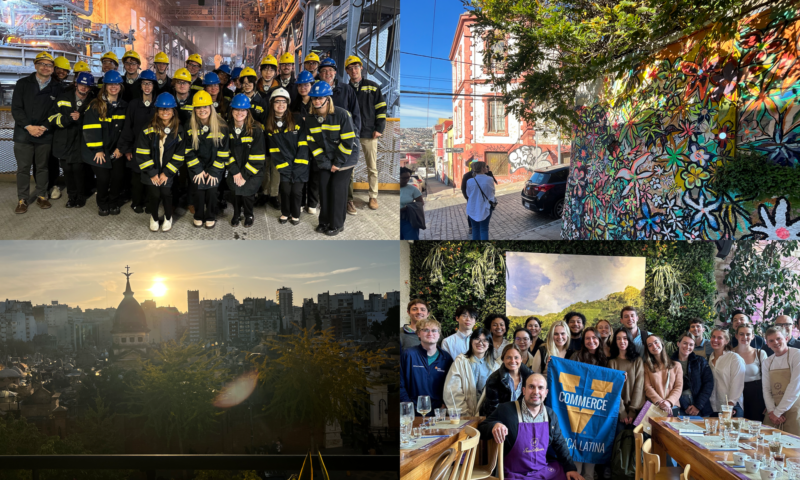One of the selling points of the M.S. in Commerce is the three-week Global Immersion Experience (GIE) at the end of the program. I’ve traveled abroad before, but most of the countries included in the program’s six tracks (regions) were new to me. Like many of my classmates, I started the countdown to GIE when I received my acceptance letter.
Fast forward two semesters. I’m sitting on a bus heading to my first company visit in Taipei, Taiwan, wondering how fast the past year flew by. We spent weeks this spring preparing for GIE, but nothing fully prepared me for the actual experience of GIE.
A typical day consists of two to three company visits and/or a cultural visit with the entire group or free time to explore. The schedule is packed, but we are learning so much from each experience and enjoying every second of it.
From the moment I landed in Taiwan, I felt immersed in the culture. During our “Foundations of Global Commerce” course with Associate Dean for Global Initiatives Peter Maillet, we talked about four dimensions of a country: people, place, political economy, and global presence. I was able to better understand how interconnected everything is after visiting the Legislative Yuan of the Republic of China, speaking with Legislative Yuan Member Wayne Chiang, and learning about Taiwan’s unique political system.
In Taipei, we also had the opportunity to visit TSMC, the world’s largest dedicated semiconductor foundry. This company visit was unique because we learned about something we use but take for granted every day. Semiconductors are what power our phones and connect the world to our fingertips. It was eye-opening to be able to see TSMC’s process and how the foundry manages large clients like Apple.
Next stop: Beijing. Company visits ranged from Asian Infrastructure Investment Bank to Initial View. We also engaged with a panel of finance professionals who work in banking, many of whom are UVA alumni. While all the visits and discussions were noteworthy and educational, I really enjoyed learning about Initial View. Terry Crawford (UVA ’96) and his wife, Gloria, founded the company to give Chinese students the opportunity to provide American universities with interviews to demonstrate their English-speaking and writing skills. This unique business model is beneficial to both the university and prospective students. Terry also shared his expertise as an American launching and running a business abroad.
Overall, the company visits so far have been a great summation of the M.S. in Commerce Program. We are able to see firsthand a variety of businesses and industries and further understand their similarities and differences. It has also been interesting to learn about their relationships with businesses in the United States. Over the next two weeks, we’ll visit three more cities, and I know that each new location and company will be an unforgettable learning experience.



